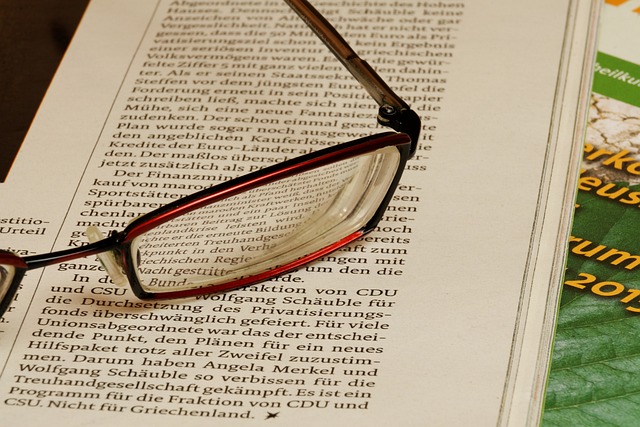Clear communication is crucial in the global scientific community, with accurate Translation Services for UK Scientific Review Articles playing a vital role in maximizing research impact and knowledge exchange. Specialized translators with scientific backgrounds ensure precise rendering of technical terms while preserving original meaning and intent. This meticulous approach navigates language barriers, facilitates global collaboration, and broadens the reach of UK scientific literature. Rigorous Quality Assurance processes and ethical considerations, including cultural sensitivity and intellectual property guidelines, guarantee linguistically sound, technically accurate, and intellectually honest translations. Case studies demonstrate how these services enhance global readership engagement and foster interdisciplinary collaborations.
In the fast-paced world of scientific research, effective communication is key. Translate review articles accurately for UK scientific communities using professional translation services. This article explores the significance of precise translation, addressing challenges from language barriers and complex terminology to ensuring quality through rigorous assurance processes. We delve into ethical considerations and present case studies showcasing successful translation projects for UK scientific journals, highlighting the transformative power of high-quality translation in enhancing research dissemination.
- Understanding the Significance of Accurate Translation for UK Scientific Review Articles
- The Challenges of Translating Scientific Literature: Language Barriers and Complex Terminology
- How Professional Translation Services Can Enhance Research Communication in the UK
- Ensuring Quality: Quality Assurance Processes in Scientific Translation
- Ethical Considerations in Translating Research Articles for UK Audiences
- Case Studies: Successful Translation Projects for UK Scientific Journals
Understanding the Significance of Accurate Translation for UK Scientific Review Articles

In the realm of scientific research and academia, clear communication is paramount. For UK scientific review articles, accurate translation services play a pivotal role in ensuring that knowledge and discoveries reach their full potential. The significance of precise translation cannot be overstated, especially considering the global nature of scientific collaboration and publishing. When translating these complex articles, it’s not just about converting words from one language to another; it involves conveying intricate scientific concepts, terminology, and methods while maintaining the integrity of the original research.
Translation errors can lead to misunderstandings, misinterpretations, or even ethical concerns, especially in fields where precise data and methodology are crucial. High-quality translation services for UK scientific review articles specialize in navigating this complex landscape. They employ linguists with scientific backgrounds who understand the nuances of the field, ensuring that technical terms are rendered accurately and contextually appropriate. This meticulous approach guarantees that the meaning and intent of the original article are preserved, facilitating effective communication across cultural and linguistic barriers.
The Challenges of Translating Scientific Literature: Language Barriers and Complex Terminology

The process of translating scientific literature, especially review articles, presents unique challenges due to the highly specialized and technical nature of the content. When it comes to UK scientific communities, ensuring precise and accurate translations is paramount for effective knowledge sharing. Language barriers are a significant hurdle; articles written in foreign languages require professional translators who possess not just linguistic proficiency but also a deep understanding of the scientific domain.
Moreover, scientific terminology is often complex and context-specific, making translation a delicate task. Terms that seem straightforward in one language may have multiple meanings or no direct equivalent in another. Translators must navigate these complexities while maintaining the integrity of the original text’s meaning. This demands meticulous attention to detail and an extensive vocabulary in both languages to convey scientific concepts accurately.
How Professional Translation Services Can Enhance Research Communication in the UK

In the realm of scientific research, effective communication is paramount, especially when sharing insights and findings with diverse audiences across the UK and beyond. One often-overlooked asset in enhancing this communication are professional translation services. When it comes to review articles, which synthesize and critique existing literature, accurate and nuanced translations can significantly impact their reach and understanding.
Translation services for UK scientific review articles play a pivotal role in ensuring that these critical pieces of research are accessible to a broader readership. Professional translators with expertise in scientific terminology and the ability to convey complex ideas clearly can bridge the gap between languages, fostering better collaboration and knowledge exchange within the UK scientific community. This, in turn, promotes a more inclusive research environment, encourages interdisciplinary dialogue, and ultimately advances the collective understanding of various scientific disciplines.
Ensuring Quality: Quality Assurance Processes in Scientific Translation

Ensuring quality is paramount when translating scientific review articles, especially for the UK scientific community. Professional translation services for these specialized texts often employ rigorous Quality Assurance (QA) processes to guarantee accuracy and consistency. This involves multiple checks at every stage of the translation workflow.
First, skilled translators with expertise in scientific terminology meticulously translate the content, ensuring precise rendering of complex ideas. Then, QA editors review the translation against the source text, checking for grammatical correctness, linguistic appropriateness, and conceptual fidelity. Advanced tools like machine translation memory and term bases further enhance accuracy by maintaining consistency in terminology usage across projects. These processes collectively ensure that UK scientific review articles translated from foreign languages are not only linguistically sound but also technically accurate and intellectually honest.
Ethical Considerations in Translating Research Articles for UK Audiences

When translating scientific review articles intended for the UK audience, it’s paramount to navigate a series of ethical considerations. These include ensuring cultural sensitivity and accuracy in conveying complex scientific concepts while maintaining the integrity of the original research findings. The translator must be well-versed in both the source language and the UK scientific context to avoid introducing bias or misinterpretations that could distort the article’s meaning.
Additionally, copyright and plagiarism issues arise, especially when adapting figures, tables, or text from existing publications. Translation services for UK scientific review articles should adhere to strict ethical guidelines, respecting intellectual property rights while providing credit where due. Transparency in the translation process is crucial, involving the original authors for feedback to guarantee the translated work remains a faithful representation of their research.
Case Studies: Successful Translation Projects for UK Scientific Journals

Successful case studies demonstrate the profound impact of professional translation services on UK scientific communities, especially in the realm of review articles. For instance, a renowned medical journal tasked with translating their peer-reviewed research from global contributors experienced significant challenges in maintaining academic integrity and precision. They partnered with a leading translation service provider, who deployed linguists specializing in medical terminology. The result was not only a seamless flow of ideas across languages but also an enhanced global readership engagement, as the translated articles reached audiences more effectively.
Another notable project involved a multidisciplinary scientific review published in a top UK journal, focusing on cutting-edge technologies. The translation team meticulously navigated the complex jargon and abstract concepts, ensuring precise communication while preserving the original intent. This meticulous approach garnered praise from both authors and readers, fostering a deeper understanding of the advancements discussed within the article. These case studies vividly illustrate how specialized translation services can elevate scientific discourse, making it accessible to a global audience and facilitating groundbreaking collaborations in the UK and beyond.
In conclusion, accurate translation of scientific review articles is paramount for effective communication within the UK research community. Overcoming language barriers and complex terminology through professional translation services significantly enhances knowledge exchange and global collaboration. Quality assurance processes ensure reliability, while ethical considerations safeguard integrity in research dissemination. The case studies presented highlight successful translation projects, demonstrating the transformative power of well-executed translation services for UK scientific journals, ultimately fostering a more inclusive and impactful research landscape.



